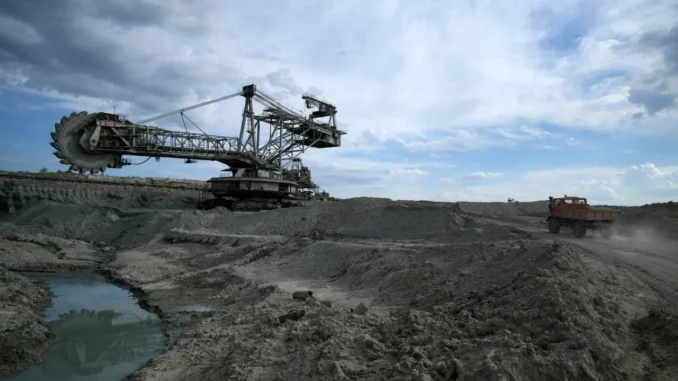
As the world watched, French President Emmanuel Macron explained the basics of supply and demand in oil markets to President Biden this week. Video of the encounter made it obvious: Energy experts need to begin loudly restating the basic truth that reliable energy is essential to human health and well-being.
Macron’s Energy 101 tutorial with Biden reinforced the reality that the world is grappling with a growing energy crisis, and the Middle East won’t be able to bail out markets. The U.S. would do well to heed this fact. It should implement protective measures for oil and gas markets, as well as for electricity markets, before it’s too late.
And make no mistake, “too late” is bearing down on us. For example, last month a Michigan utility closed an 811-megawatt nuclear plant almost a decade before its operating permit expired. Last week, the Michigan Public Service Commission took it a step further by approving a request by Consumers Energy, a major utility, to close its last remaining coal plant by 2025. That’s 15 years ahead of schedule. The closure will mean 1,560 megawatts of reliable capacity lost so the company can meet its wholly voluntary goal of net-zero CO2 emissions by 2040.
Pair these planned closures with plans pending for many other large generation plants elsewhere. You can easily see the reliability of electricity in the region dancing close to the edge. Warnings from the North American Electric Reliability Corporation, which oversees the North American electric grid, clarify our tenuous situation. NERC’s 2022 Summer Reliability Assessment reported that much of the Midwest “faces a capacity shortfall … resulting in high risk of energy emergencies during peak summer conditions.”
The Midcontinent Independent System Operator (MISO), which supervises the grid in 15 U.S. states and one Canadian province, released a similar warning. It laid the blame for increasing grid fragility on “thermal retirements and the increasing transition to renewables.”
MISO representatives gave added warnings of possible power shut-offs if utilities can’t import electricity from outside their operating areas, or if the wind doesn’t blow during periods of high demand. In comparison, PJM, the nation’s largest grid operator, credited new natural gas generation and electricity from recently rescued nuclear plants in Illinois for abundant supplies and low prices.
In the face of growing energy shortages and Russia’s use of natural gas as a political weapon, several European countries are choosing to delay the increasingly dangerous rush to impose green energy. Germany, Austria, Netherlands, the Czech Republic and the United Kingdom all are reopening mothballed coal plants, at least temporarily.
The Czech ambassador at large for energy security, Vaclav Bartuška, put it bluntly: “If there is a gas cut out this winter, we will burn anything we can to keep our people warm and to make electricity.” The Dutch have set out an “urgent appeal” to save natural gas ahead of winter and have decided to lift all restrictions on coal-fueled generation stations.
Germany and Austria are both cutting natural gas consumption and opening coal plants to bolster their supply of gas before winter comes. German Economy Minister and Green Party member Robert Habeck said, “This is bitter, but it’s essential” to restart coal plants. Utilities, he said, need more time to make clean energy options safe and reliable.
In North America, Jim Robb, CEO of the electric industry watchdog NERC, appeared on Soledad O’Brien’s “Matter of Fact” show to warn against the “disorderly retirement of older” coal and nuclear generation facilities. It “is happening too quickly,” he said. Robb reminded viewers of the need to balance reliability, affordability and environmental impact. He critiqued the tendency to “overemphasize one of the three dimensions” and said, “Even a moment without power is a real problem for people.”
When renewables made up a few percentage points of our electricity supply, it was relatively harmless for some to pretend there were only negative outcomes from fossil and nuclear fuels. The rest of us knew that, despite any challenges associated with their use, we could always rely on them for heat and electricity. But across the planet, green energy policies have pushed us to a tipping point. We’ve shuttered too many reliable energy sources, and the inherent flaws of renewable energy are growing too large to ignore.
It’s past time that we halt the dangerous rush to utilize only green energy such as wind and solar. We’re simply not ready.
Jason Hayes is director of environmental policy at the Mackinac Center for Public Policy in Midland, Mich
Source: Thehill.com



